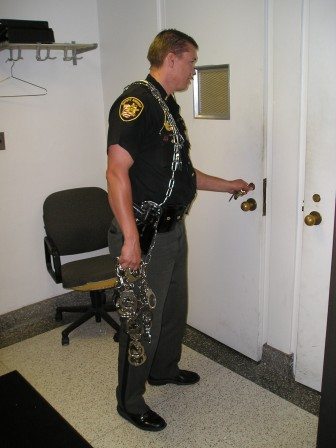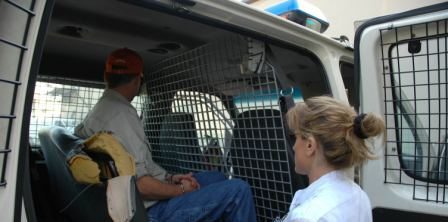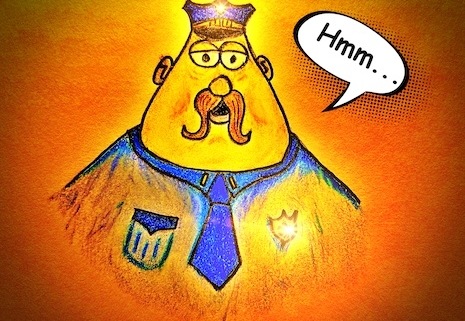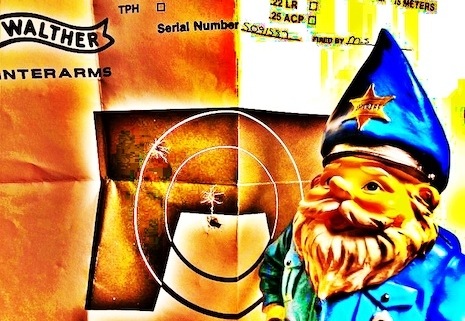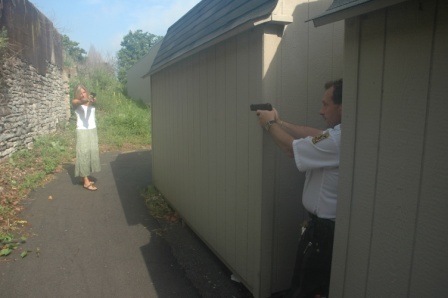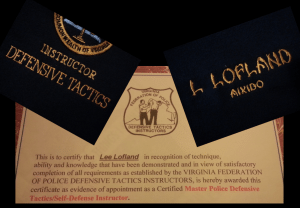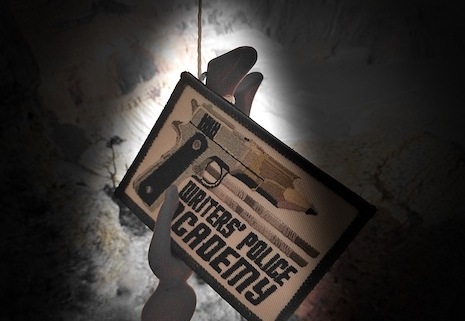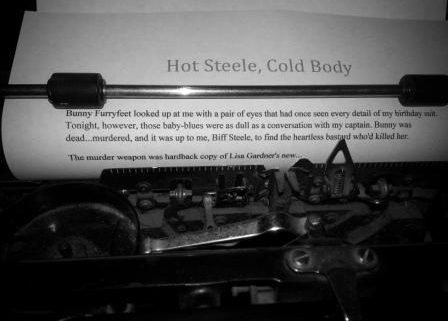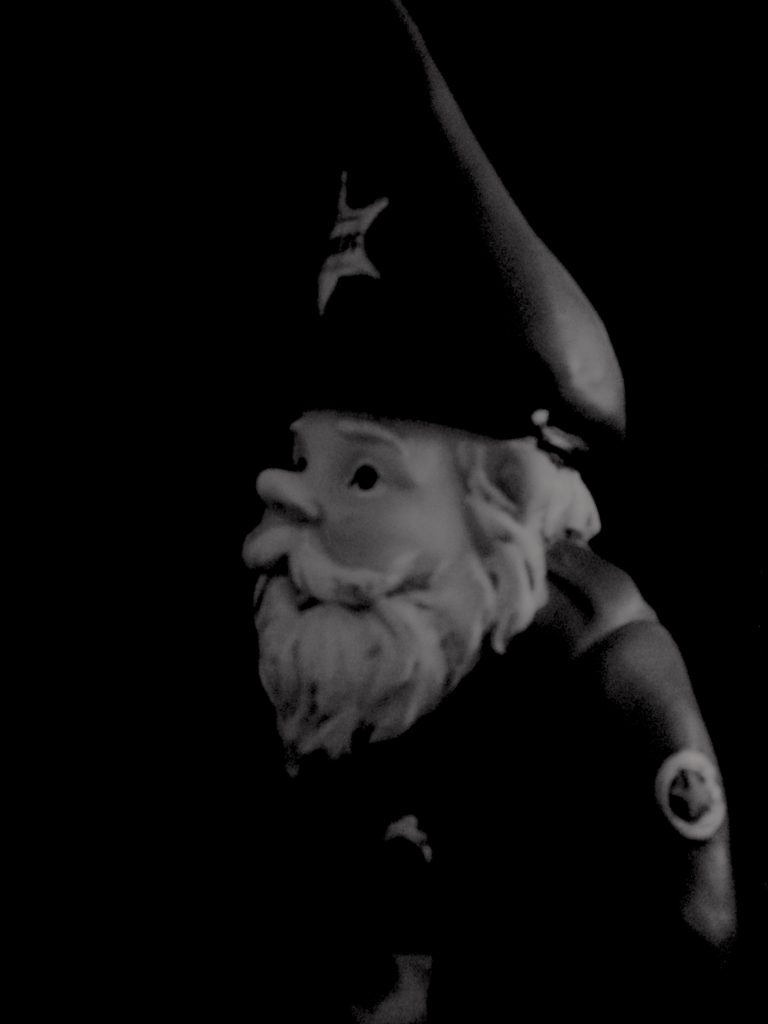I don’t know when it started, but it did and it is puzzling. After all, when did, “I got out of my car” become “I exited my vehicle.” And how is it that, “Are those donuts for Ralph and me?” is sometimes spoken as, “Are those donuts for myself and Ralph?”
Cop Speak is a unique language that we’ve all heard from time to time, especially on television and film. We also hear officers speak in that unusual manner during courtroom testimony, particularly when the officer who’s doing the testifying is in the early stages of their career.
Typically, the cop-speak eventually fades as time passes and as officers mellow with age and experience. It also tends to disappear as officers move on to other duties, such as those performed by detectives, CSIs, etc. However, until cops somehow manage to bite their tongues and begin speaking in a a language understood by all, well, juries, judges, attorneys, and TV news-watchers will continue to mutter the universally-understood phrase, “WTF did he say?”
Again, I don’t have a clue how or when cops started speaking like robots from outer space, but they do, and here’s a small sample of it along with accompanying translations.
- “I exited my vehicle.” Translation – I got out of my car.
- “I gave chase and pursued… ” Translation – I ran after …
- “Be advised.” Translation – Listen to what I have to say.
- “I contacted the driver of the car.” Translation – I walked up to the car and spoke with the driver.
- “I detected the odor of …” Translation – I smelled pot and/or liquor, beer, dynamite, funky feet, flatulence (feel free to insert your favorite scent) in his car.
- “I surveilled said subject.” Translation – I watched that guy.
- “Myself and Officer Ralph Alsotalksfunny ascertained his location.” Translation – Ralph and I found the bad guy’s hideout.
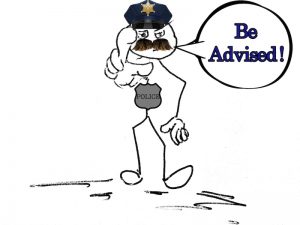 Before moving on, let’s imagine for a moment that the officer who spoke the above phrases is in court testifying before a judge and jury, where he says …
Before moving on, let’s imagine for a moment that the officer who spoke the above phrases is in court testifying before a judge and jury, where he says …
“I surveilled said subject for one hour. I observed said subject stop his vehicle beside an unknown male subject at the corner of Syringe Street and BagoDope Boulevard. Said subject exchanged what appeared to be U.S. paper currency for a clear plastic bag containing a green leafy substance, at which time I activated my emergency equipment and effected a traffic stop.
I exited my vehicle and contacted the driver, Mr. I Didntdonuffin, a white male. I immediately detected the odor of an intoxicating substance. Based on my academy training in narcotics recognition I believed the source of the odor to be marijuana.
I asked Mr. Didntdonuffin to exit his vehicle. Upon exiting his vehicle, a two-door red convertible with Florida plates, number Ida, Ida, X-ray, Paul, David, 666, he fled the scene on foot. I gave chase and pursued said subject to the parking lot of Peggy Jean’s Cut and Curl and Pig’s Feet Emporium where I caught and restrained him using pain compliance techniques and two baton strikes to said subject’s right thigh area. I immediately notified dispatch and my supervisor of the situation. My radio traffic at the time went like this – ‘Be advised that I have said subject in custody at this time. Send rescue and a shift supervisor. Myself and said subject need medical attention. Ten-four?'”
Translation…
“I saw Mr. I. Didntdonuffin stop his car at the corner of Syringe Street and BagoDope Boulevard. A man walked up to his window and handed him a plastic bag containing what appeared to be marijuana. In return, Mr. Didntdonuffinthen handed the man some cash. I immediately switched on my blue lights and initiated a traffic stop.
When I walked up to Mr. Didntdonuffin’s car I smelled the odor of marijuana. I asked him to step out of the car so I could conduct an investigation. When he got out he ran away, but I was able to catch him when he tripped and fell in the parking lot of Peggy Jean’s Cut and Curl and Pig’s Feet Emporium. He began punching and kicking me so I used my baton to help gain control and then I applied handcuffs to his wrists. We’d both received a few cuts and bruises during the scuffle so I called for an ambulance crew and for my supervisor.”
Again, I don’t know how the odd cop speak started, or why, but it really should stop. Officers don’t talk like this when they’re engaged in normal conversation, so why switch to the weird stuff when in court or in front of a camera?
Anyway, here are a few additional words and phrases often used by cops.
- Open Mic – Not to be confused with talent night at the local watering hole. A sometimes horrifyingly embarrassing experience that occurs when the button on an officer’s walk-talkie (“portable”) is accidentally keyed and sticks in the “talk” position, such as when the officer unsuspectingly leans against a seat belt buckle. LOTS of incriminating things are heard during these moments … “Yeah, I heard about the chief and the new dispatcher. Better than that I saw his car parked at the Sleazebucket Inn last night, and hers was parked across the street.”
Cell phone rings. “Hey, you’ve got an open mic.”
A pause.
“Oh, s**t!”
Captain Jim’s Open Mic … it’s a hot one!
Click here to read about Captain Jim, sex in a patrol car, and an open mic.
- Wants – Outstanding warrants. “Any wants on that guy?”
- Negative – No. “Negative. The agent said my work was crap and that I should burn the manuscript, toss my computer into a fiery pit, and then drink a gallon of rat poison, should I EVER think of trying to write again.”
- Crotch Rocket – Lightweight motorcycle featuring the “leaned-over/hunched-over” seating style. These are the bikes often seen on YouTube videos where their riders are performing stunts and outrunning the police at super-high speeds while dangerously weaving in and out of traffic. “You’ve got a crotch rocket heading your way. I picked him up doing 140 when he passed me.”
- Slick-top – A patrol car without a light bar on top. Typically, supervisor’s car. “There’s a slick-top parked in the alley beside Billy Buck’s Barber Shop and Snack Bar. I think he’s watching to see if we’re working or goofing off.”
- Light “Em Up – This phrase is used to refer solely to activating emergency lights when initiating a traffic stop. Nowadays it also applies to TASER use. Traffic stop – “Light ’em up as soon as he turns the next corner.” TASER – “Stop hitting me in the head with that sledgehammer or I’m going light you up.”
- Keyholder – Someone who’s responsible for a business. “Call the keyholder and ask them to come down to switch off the alarm. They’ll also need to take a look around to see what’s missing.”
- Mopes – Stupid bad guys. Worthless lowlifes. “There are a couple of mopes hanging out behind the dumpster in the alley between Zippy’s Lunch and Frankie’s Wholesale Weiner Outlet. I think they’re smoking crack while figuring out how they can buy more.”
- Hinky – Something’s not quite right. “I don’t know, man. I feel really hinky about this one.”
- Alley Apple – Objects used to throw at police—bricks, rocks, metal, etc. “Watch out, they’re tossing alley apples from the roof of Tom Peeper’s Binoculars, Trench Coat, and Periscope Plaza.”
- Ditch Doctor – An EMT or other ambulance crew member. “Looks like those arms and that leg belong to the guy over there. The ears, well, I’m not sure. The ditch doctors’ll sort it out while we direct traffic.”
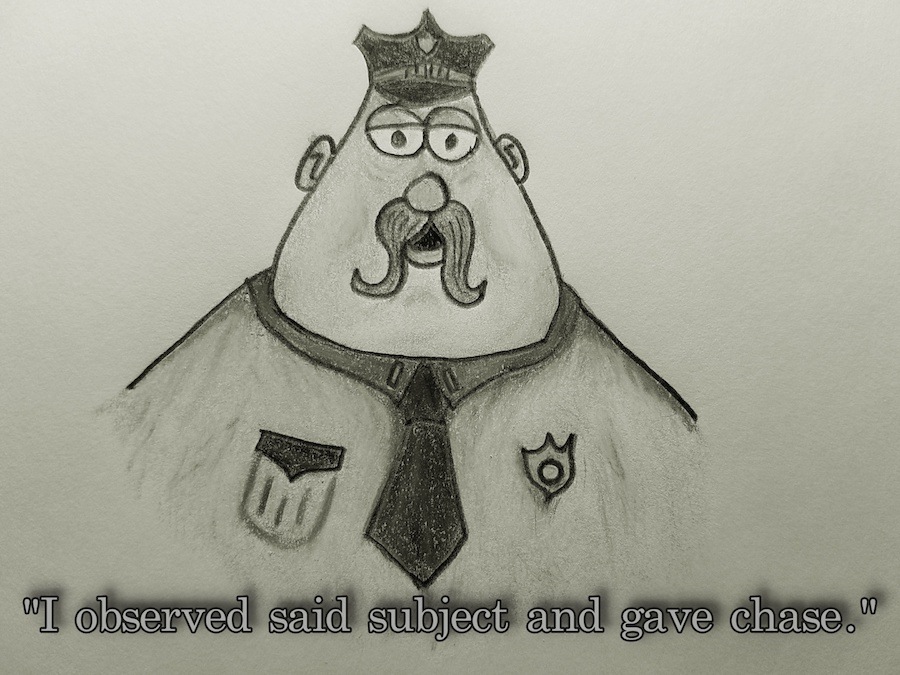

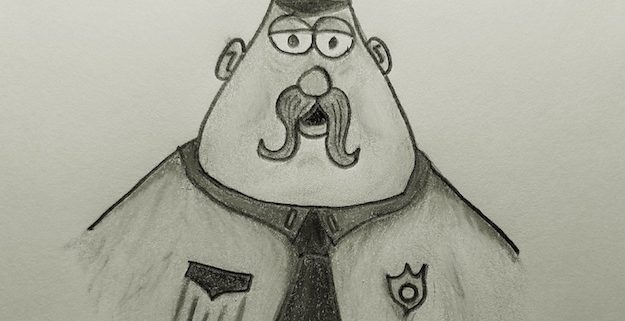

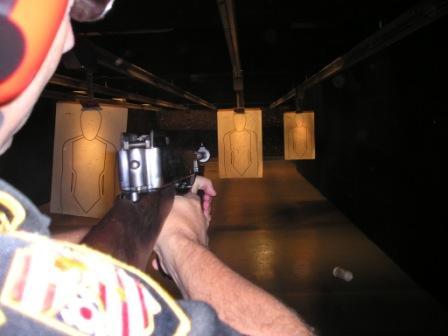

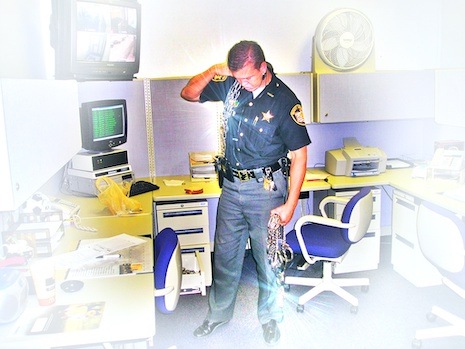 Jailers barking the same old tiresome orders over and over again. “Let’s go! Get your sorry asses up and moving! No, no showers today. No, there are no toothbrushes. No deodorant. No washcloths. You’ll get your breakfasts in the van. Yes, cold boiled eggs and fake Kool Aid … Let’s GO!”
Jailers barking the same old tiresome orders over and over again. “Let’s go! Get your sorry asses up and moving! No, no showers today. No, there are no toothbrushes. No deodorant. No washcloths. You’ll get your breakfasts in the van. Yes, cold boiled eggs and fake Kool Aid … Let’s GO!”

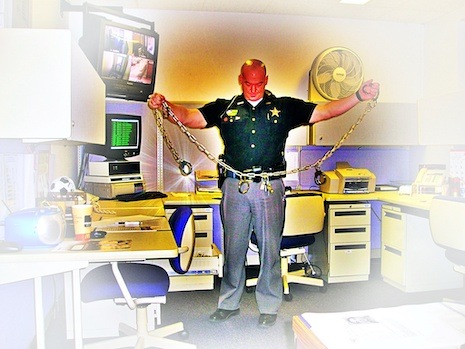 Bird was elated when it was his turn to climb the three steps to have the hardware removed, especially from his ankles. Wearing the steel cuffs daily for a week had rubbed the thin skin there until it was raw and extremely sore down to the bone.
Bird was elated when it was his turn to climb the three steps to have the hardware removed, especially from his ankles. Wearing the steel cuffs daily for a week had rubbed the thin skin there until it was raw and extremely sore down to the bone.

